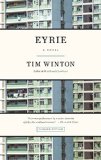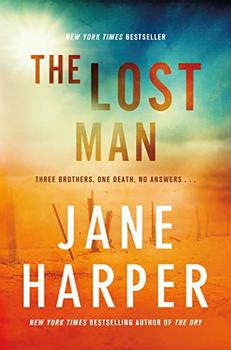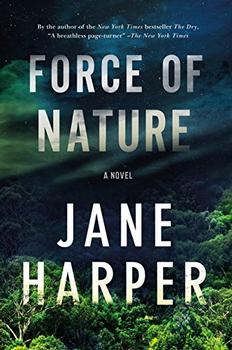Summary | Excerpt | Reading Guide | Reviews | Beyond the book | Read-Alikes | Genres & Themes | Author Bio

Wide-eyed idealism doesn't buy you much currency if you don't know how to translate it into results-oriented action in the real world. Middle-aged Tom Keely has learned this lesson the hard way. Once an environmentalist of strong standing, Eyrie finds Keely fallen from grace, just eking out an existence in a high-rise apartment in downtown Fremantle on the coast of Western Australia close to Perth.
Things get more complicated when a childhood acquaintance, Gemma Buck, moves in down the hall with her six year-old grandson, Kai. Years ago, it was the senior Keelys, Tom's parents, who had sheltered Gemma and her sister from severe parental abuse. Gemma's life since has not been much to write about. Now Gemma is barely staying afloat with a minimum-wage job, struggling to keep the nastier elements of her past at bay. Against his better instincts, Tom gets pulled into Gemma's orbit, and into the complexities of her hardscrabble existence.
Tim Winton paints a picture of capitalism gone amok, chewing up the weak and vulnerable along its way. Freo – as Fremantle is referred to – with its ubiquitous franchises and cappuccino bars, could be a stand-in for just about any major city in the developed world: "In the seventies the Strip had been a beacon of homely cosmopolitanism, a refuge from the desolate franchise dispensation stretching from sea to hazy hills," Winton points out. "But that was before it calcified into smugness. Somewhere along the way the good folks of the port settled in the wisdom that coffee was all the culture and industry a town required."
Place is a big part of Eyrie. While it's true that multinational companies are greedily chipping away at Freo's uniqueness, Winton still manages to shine light on the city's many charms, such as the small diners that locals frequent and the beautiful beaches, giving it a starring role in the novel. Yet not all is pretty in Winton's Fremantle. Mirador, the high-rise where Tom lives, is a living breathing object, its pipes creaking and groaning audibly:
"It was a classic shitbox: beige bricks, raw concrete galleries, ironbar railings, doors and windows like prison slots. Hard to credit that fifty years ago some nabob thought it a grand idea, a harbinger of progress. The place had grown old and grim within months of its completion and the subsequent years had not been gentle. Locals despised it. But it had been a haven for old folks, retired lumpers and clerks, invalid pensioners, transients, drunks and welfare mothers. They were still there, many of them, lately joined by the first gentrifying hopefuls and middle-class casualties like himself."
Always one to emphasize plot and pace, Winton excels at crackling cinematic dialog, the best I have read in a long time. It serves to keep the tension high as the stakes grow increasingly desperate. Winton's signature characters – strong women and troubled men – are also a powerful component of Eyrie. Tom Keely might not be a very likeable character, but most readers can find something to relate to in his desperate struggle to hang on to some ballast in his life. Riddled with liberal guilt, he is full of the best intentions to deliver Gemma and Kai to some kind of safe haven. But as Doris, Tom's mother, reminds him: "To save a drowner you need to be a swimmer." And a swimmer Tom Keely is not. Haunted by the ghosts of his own past, lacking any kind of tools with which to face the "real world," one can't help but cringe at his almost childish attempts to rescue Gemma from her troubles. It is Doris who has learned how to navigate life's vagaries, and she understands that there are many shades of gray to everyday circumstances. At a successful station in her life, she is frustrated by her son's steadfast refusal to shake off what she thinks is an oversimplified way of looking at things. "You have such romantic ideas about the working class," she gently chides Tom.
In the end, Eyrie is a dark, immensely readable novel that, despite an ending that doesn't quite tie the strings together neatly, never loses its sheer propulsive power. It's also funny and hip and makes its statements without wearing its agendas heavily on its sleeve. An "eyrie" is a large nest of a bird of prey, usually an eagle, built way up high. As this devastating novel shows, Tom Keely's lofty ideals, high and inaccessible, are their own kind of eyrie. When confronted by the harsh realities of life, the results might not always be pretty but they're definitely brutally honest. And, for Tom, the bitter pill might be hard to swallow, but it might be just what the doctor ordered.
![]() This review was originally published in The BookBrowse Review in June 2014, and has been updated for the
July 2015 edition.
Click here to go to this issue.
This review was originally published in The BookBrowse Review in June 2014, and has been updated for the
July 2015 edition.
Click here to go to this issue.

If you liked Eyrie, try these:

by Jane Harper
Published 2019
Two brothers meet in the remote Australian outback when the third brother is found dead, in this stunning new standalone novel from New York Times bestseller Jane Harper.

by Jane Harper
Published 2019
From the New York Times bestselling author of The Dry, when a hiker goes missing, secrets and betrayal among friends are exposed, and Agent Aaron Falk will find out what happened.
Your guide toexceptional books
BookBrowse seeks out and recommends the best in contemporary fiction and nonfiction—books that not only engage and entertain but also deepen our understanding of ourselves and the world around us.